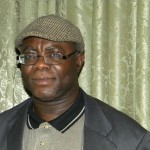
Still, Mr. Malema is, of course, entitled to his own opinions on economic policies as well as his understandably hostile attitude towards South African whites, particularly those of Boer/Afrikaner descent. Truth be said: I have no particular partiality for them either; neither can I confidently say that I have been victimized by Afrikaner racism, political domination and exploitation the way Mr. Malema has been, because, of course, I was not born in South Africa. Neither have I lived in that otherwise colorful and natural-resource endowed African country.
Whatever I have experienced by way of the untold misery visited on indigenous South Africans for generations until barely a decade-and-half ago, has been purely vicarious, experienced primarily through my close and intimate association and friendship with my South African classmates at the City College of New York of the City University of New York between 1985 and 1990. And largely intellectually, thereafter, with three South African professors that I had the privilege of undertaking graduate studies with at Temple University, Philadelphia, between 1990 and 1994, namely, Drs. Alfred Moleah and Clement Tsheloane Keto; and Mrs. Thelma Ravelle-Pinto, an East-Indian descended South African woman who brought the equally significant “colored” perspective to bear on what it felt to be non-white in the Apartheid era.
I would also briefly audit lecture presentations by Mrs. Ravelle-Pinto’s husband, the late Mr. James Ravelle, also of East-Indian descent like his wife. And here must also be added in passing that both Drs. Moleah, who later became South Africa’s ambassador to Switzerland, and Keto, who also became deputy vice-chancellor at a reputable college in the Cape Town region, are now deceased.
Anyway, recently, Mr. Julius Malema, the head of the ANC’s Youth League, was widely reported to have called for regime change in the neighboring Republic of Botswana, whose leadership Mr. Malema has caustically accused of acting as mere puppets for the West and thus a serious threat to Africa’s political development and destiny (See “ANC’s Julius Malema Apologizes for Botswana Remarks” BBC-News: Africa 8/14/11). Most likely, Mr. Malema’s remark was made, copycat-style, in synch with the putative “Arab Spring,” actually a “storm” would be a more appropriate expression, that has been sweeping up much of North Africa and the Arab world since February this year.
Nevertheless, it is quite clear that if the increasingly overreaching wings of this ANC lightning rod are not promptly clipped, the young man may well become an insuperable liability for the political dominance of the ANC in post-Apartheid political culture down the proverbial road. His behavior could well cause a massive turn away from Black majority governance into something not quite savory.
And so it is all well and good that the obviously exuberant Mr. Malema has been prevailed upon by the leadership of the ANC, presumably, to apologize to the leaders of Botswana. Needless to say, South Africa, like the rest of the nations on the continent, is faced with more than adequate human development problems for the exuberant and rambunctious likes of Mr. Malema to grossly presume to provoke gratuitous external aggression against its neighbors, least of all, a peaceful neighbor like Botswana.
Mr. Malema himself acknowledges the fact that his statement of abject hostility towards Botswana “has poisoned the environment.” And it is significant to note that this is not the first time that the ANC Youth League leader has provoked national controversy. Early this year, Mr. Malema roiled up a similar outrage when he sang an old anti-Apartheid war song containing the phrase “Shoot the Boer.” It, therefore, ought to have become clear to the ANC leadership, by now, that hip-shooting figures like Mr. Malema cannot be relied upon to peaceably direct the affairs of the nation in the foreseeable future, especially if the post-Mandela South Africa is to remain a stable and peaceful multiracial polity.
Mr. Malema, it must also be clearly seen, is a wealthy property-owning populist who falsely and hypocritically preaches socialism, including the blanket nationalization of the mining industry, a significant employer of that country’s African majority, and the equally economically strategic plantation system. The history of socialism north of South Africa ought to, by now, have served as a meaningful lesson to the ANC Youth League leader.
Needless to say, Mr. Malema is a populist leader whose personal lifestyle is generations removed from that of those in whose interests he, supposedly, seeks to agitate against the very system that has made him the remarkable economic force that he is today. Thus, strategically removing him from the leadership of the ANC Youth League would not only save the evidently nihilistic Mr. Malema from himself, it would also save the ANC government from unnecessary embarrassment and distraction from its constructive agenda of development in a stable and peaceful environment.
Kwame Okoampa-Ahoofe, Jr., Ph.D., is Associate Professor of English, Journalism and Creative Writing at Nassau Community College of the State University of New York, Garden City. He is Director of The Sintim-Aboagye Center for Politics and Culture and author of 22 books, including “Selected Political Writings” (Lulu.com, 2008).
E-mail: okoampaahoofe@optimum.net
The opinions expressed here are the author’s and do not necessarily reflect the views or have the endorsement of the Editorial Board of AfricaNewsAnalysis.
